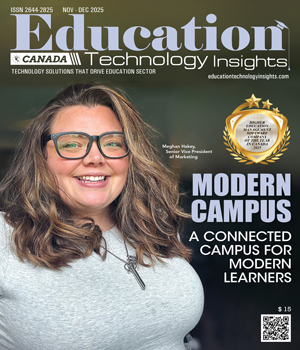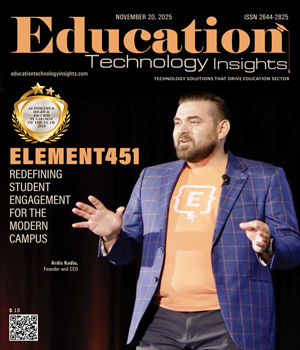THANK YOU FOR SUBSCRIBING
Be first to read the latest tech news, Industry Leader's Insights, and CIO interviews of medium and large enterprises exclusively from Education Technology Insights
Flipping the K-12 Educational Technology Script: How will we respond?
Kourtney Bostain, Director of Innovation, Henrico County Public Schools
 Kourtney Bostain, Director of Innovation, Henrico County Public Schools
Kourtney Bostain, Director of Innovation, Henrico County Public SchoolsIn March 2020, everything I knew about K-12 education and the powerful role technology could/would/should play in learning came to the forefront almost overnight. Almost all of my twenty years in K-12 education had been in Instructional Technology, where I passionately advocated for leveraging technology to transform teaching and learning. As one would imagine, throughout this time, the technology landscape drastically changed, but my work and the narrative around using technology to support learning did not. For two decades, I found myself championing this notion of “it is not about technology,” but in that effort, the narrative was, in fact, about technology. The standards-based, assessment-driven system did not allow for innovation and technology in the classroom for many educators.
Fast forward to today, and the dramatic shift learners and teachers across the country felt due to the pandemic. Almost overnight, many were engaging with the learning management systems, video conferencing tools, digital curricula, and design tools that had been readily available for years. However, for various reasons, they were new to many as the quality use of technology in the classroom has not scaled beyond “pockets of excellence” for years in K-12. Pre-pandemic, many systems were still grappling with how to scale their “technology initiatives.” This is where the continued misstep in K-12 comes in...this is not a technology initiative; this is a “doing the best thing for our children” initiative.
One of the most significant transformations I witnessed was the new reliance on the technologies that pre-pandemic was nice to have but not a necessity. Even more, than this was the utilization of the very skills and dispositions that educational leaders have championed for years as the focus for learners and “technology initiatives.” Students and teachers alike had to rely on character and empathy and the skills of communication, collaboration, critical and creative thinking as they navigated the “new normal.” Without these two powerful forces combined, it would not have worked (and in some cases, it still did not work)
Now, as school systems are preparing to welcome learners back into their physical spaces and the conversations shift from educational technology to learning loss, what will that mean? Will we preserve all that we have gleaned from virtual and hybrid learning from the last year or abandon ship and fall back into what we knew pre-pandemic? Will the “learning loss” conversation and focus become the new “technology initiative” conversation? It cannot. Our children and teachers deserve more and now, more than ever as leaders in education, we need to rise to the challenge and use this re-entry to completely flip the script from numbers and initiatives to designing systems that not only see the whole-child but commit to providing unique, personalized pathways to success and achievement. What if the script is not about what they lost, how long they sit in a seat, or what technology they use, but about who they are and what they need for individual success? What if that success was no longer measured by “seat time” and how long they engage with a digital curriculum, but about their agency and empowerment that motivates them to know more and do more? If we are not careful, the “learning loss” narrative could do more harm than good as it focuses on deficits rather than assets
Furthermore, now, more than ever, our children will rely on us to provide a safe and supportive space for learning that not only motivates them but uniquely challenges them to be their best selves. Our future is in their hands. How will we respond?
Read Also
Navigating Course Map Design
Beyond the Classroom: Supporting Belonging and Wellbeing for International Students
Building Responsible AI Practice Across a University
Designing Engagement That Lasts
Digital Creativity as a Catalyst for Deeper Learning
Protecting Precious Cargo: A Comprehensive Look at School Bus Safety

I agree We use cookies on this website to enhance your user experience. By clicking any link on this page you are giving your consent for us to set cookies. More info
























